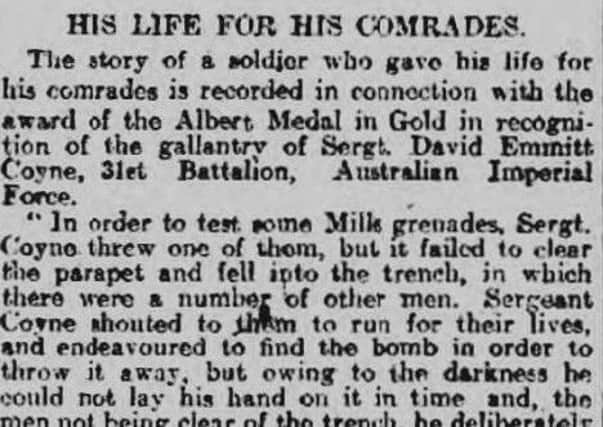Armistice 100: Germans '˜drunk' when Allies landed but were 'sobered up by methods more effective than pleasant', says report


This is according to a report gracing the pages of the Yorkshire Evening Post 100 years ago today. It relays that, having carried out a sustained bombardment with their heavy guns - “there was a continual roar from throats of the monster pieces, which were continually firing” - they landed on the beaches and made their way up into the ruins of the German defences. There they came across “numbers of German soldiers hopelessly drunk and inquiry showed these men had been left behind to explore a large number of mines... with the purpose of destroying the town.”
It goes on: “The stupefied Germans were sobered by methods more effective than pleasant and told they must immediately put all the mines out of action.”
Advertisement
Hide AdAdvertisement
Hide AdIn other news, there was a world wide outbreak of influenza, with 5,000 deaths reported in Capetown alone in just under a fortnight and new cases appearing in Leeds, with four inquests taking place. However, medical officers here said the outbreak was not as severe as previous ones and that there was no need to worry overmuch at that time. Abroad, however, it was a different matter, with some train services restricted and a ban on some public meetings and performances.
The fish report from Grimsby relayed the day’s catch was “short”, prices remained at the ‘control rate maximum’, apart from haddock, which fell to 8s 6d per stone, the lowest price for several weeks.